What to Look for When Buying a Shipping Container: Size, Price, Condition & Usage

Do you need to buy a shipping container but aren’t sure where to start? You’re not alone. Figuring out the right size, condition, and type can feel overwhelming. You have to look at several factors like size, condition, usage, etc while buying a shipping container.
This guide answers the questions most buyers ask, helping you navigate the process step by step. Let’s get started on finding the container that fits your vision and your budget.
Understanding Shipping Container Sizes
Choosing the right shipping container size is essential for efficient storage and workspace utilization. With a wide range of containers available, it's important to focus on the most popular options.
Among others, HCT’s weatherproof 20ft container office deserves special mention. This unit offers 160 square feet of secure, weather-resistant workspace, making it ideal for use as a mobile office or onsite meeting room.
Now, let’s explore the various shipping container dimensions.
|
Container Type |
Exterior Dimensions |
Interior Dimensions |
Door Opening |
Weight (lbs) |
Payload (lbs) |
|
20ft Used Shipping Container |
20’L x 8’W x 8’6”H |
19’4″L x 7’8”W x 7’10”H |
7’8”W x 7’5”H |
4,820 |
62,380 |
|
40 ft High Cube Shipping Container (Used) |
40’L x 8’W x 9’6”H |
39’5″L x 7’8”W x 8’10”H |
7’8”W x 8’5”H |
8,575 |
58,625 |
|
40 ft Used Shipping Container |
39’9 3/4”L x 8’W x 8’6”H |
39’4″L x 7’8”W x 7’10”H |
7’8”W x 7’5”H |
6,500 |
62,600 |
|
53 ft Used Shipping Container |
53’L x 8’6”W x 9’6”H |
52’6”L x 8’2”W x 8’10”H |
8’2”W x 8’7”H |
10,360 |
55,000 |
|
20ft New Shipping Container |
20’L x 8’W x 8’6”H |
19’4″L x 7’8”W x 7’10”H |
7’8”W x 7’5”H |
4,820 |
62,380 |
|
40 ft High Cube Shipping Container (New) |
40’L x 8’W x 9’6”H |
39’5″L x 7’8”W x 8’10”H |
7’8”W x 8’5”H |
8,575 |
58,625 |
|
20ft New Open Side Shipping Container |
20’L x 8’W x 8’6”H |
19’4″L x 7’8”W x 7’10”H |
7’8”W x 7’5”H (end door) |
4,850 |
62,350 |
What Will You Be Using Your Shipping Container For?
The first and foremost thing you have to do is to be clear about your intended use. Do you want a shipping container for extra space, for shipping goods, or a base for a creative conversion like an office or home?
With all the answers in your mind, you can better determine the type, size, and condition of container you need. You can find containers in a number of sizes, ranging from compact 10-feet units up to expansive 53-feet containers. However, the 20-foot and 40-foot options are by far the most popular choices for most applications due to their versatility and ease of handling. Understanding the shipping container dimensions is crucial in making the right choice.
If you need a storage unit for general storage or transporting dry goods,a standard dry container should be your top pick. On the other hand, if your cargo needs temperature control, such as perishable foods, pharmaceuticals, or chemicals, choose a refrigerated container.
Also, not to forget about the latest and growing trend of converting a shipping container into a working space like a home or office. For your information, Shipping Container is considered as the best option for office conversion. If this is what you are planning, go for a high cube container for extra height and space.
Should I Buy a New or Used Shipping Container?
This is one of the most important decisions you’ll make. This choice comes down to your budget, intended use, and how much wear and tear you’re willing to accept.
The new or the one-trip containers are the brand new containers that have minimal wear. These are just right for visible projects or conversions, but cost more. Then comes used containers, these are more affordable, may have several dents or rust. But not to forget, these can be just as functional for storage or non-visible uses.
A piece of advice – always inspect used containers for rust, water tightness, and structural integrity.
What Factors Affect Shipping Containers Price?
There is not one or two factors that influence the shipping containers’ price, there are many. Some of them are -
Shipping Container Size -
The bigger ones like 40 ft or 53 ft cost a bit more than smaller ones like 10 ft or 20 ft. Even high -cube and specialty sizes can be expensive.
Condition -
The one-tip or new containers are pricer. But if you are looking for a budget friendly option, go for a used one.
Type -
There are standard containers and special containers. If you buy or rent a standard one, it will cost you less. But for special add ons, you have to pay a hefty price.
Material -
Containers made from high-quality, corrosion-resistant steel (like corten steel) are more expensive. If you need extra insulation or special materials, that adds to the price too.
Location and Delivery -
Where you buy matters. Containers are usually budget-friendly near ports or in big cities. If you live far away or in a remote area, delivery costs can add up.
How to Buy Shipping Containers the Right Way?
Define Your Purpose -
Start by understanding for what purpose you are going to use the shipping container for. This is going to help you determine the ideal shipping container size and type.
Choose the Right Shipping Container Size -
Shipping container dimensions vary. If you need to store huge or bulking items, a high cube container will be the right pick. When you ensure to choose the right size, the container will fit your space and needs.
Understand Shipping Containers Price -
You already know about the factors that influence the price of the shipping containers. Just don’t forget to include delivery fees which add up quickly if you are far from port or depot.
Buy from a Trusted Seller -
Always choose a reputable supplier like HCT Containers who offers transparency and provides a clear quote including delivery and modifications. Prepare your site for delivery by ensuring easy access and a level foundation.
Research is the Key -
Don’t settle for what you see as the first option. Spend some time on research. You never know when you can get better quality at a lesser price. This way you can get the most out of your investment.
Bringing It All Together
Take your time to assess your needs, compare shipping container sizes (20ft vs 40ft shipping containers), and factor in both price and condition before making a purchase. Always research trusted suppliers, clarify all costs, and don’t hesitate to ask questions.
The right container will serve you for years, so make your decision wisely. Ready to find the perfect fit?
If your search history says “Buy Shipping Container Near Me”, contact HCT Containers today for expert guidance and the best deals on quality shipping containers.
Frequently Asked Questions
How do I Maintain My Shipping Container?
Regular maintenance includes cleaning the container, inspecting for rust, dents, and leaks, and ensuring doors and seals work properly. Address any minor issues quickly to prevent bigger problems down the line.
Can Shipping Containers Be Modified?
Yes, shipping containers can be customized with doors, windows, insulation, electrical wiring, and even plumbing. Always work with experienced professionals to ensure modifications are safe and meet your needs
How Long Do Shipping Containers Last?
A well-maintained shipping container can last 20–30 years or more. But if you go for regular maintenance, such as painting and treating rust, you are sure to extend its lifespan.
What Should I Do If My Container Develops Rust or Leaks?
If you spot rust, clean and treat the area immediately with a rust converter and repaint for protection. For leaks, identify the source and seal it using appropriate materials to prevent water damage and maintain container integrity.
How Much Does a Used Shipping Container Cost?
You typically have to pay between $1,500 and $4,000 for a used shipping container. However, the cost is affected by various factors like size, condition, and location. If you choose older containers, they’ll cost less than those in near-new condition.
What Size Shipping Container Should I Buy for Storage?
If you need a container for general storage, the 20 ft option is the best, but for more space, go for a 40 ft one. You must always consider the available space on your property and how frequently you’ll access the contents.
Can I Use a Shipping Container As An Office?
Yes, of course. You can convert them into offices with electricity, insulation, and ventilation. A shipping container is one of the most cost-effective solutions for both temporary and permanent workspace needs.


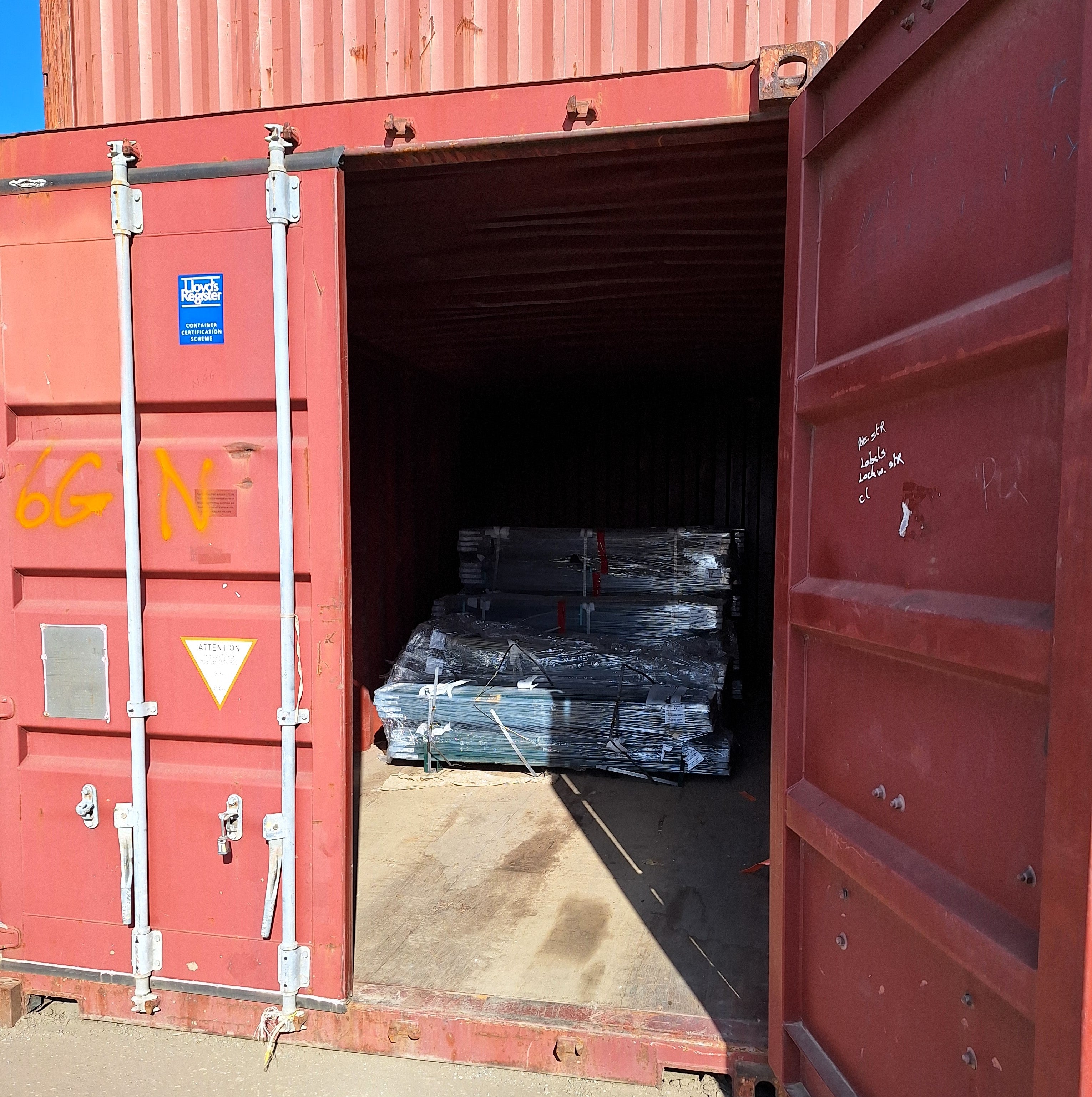
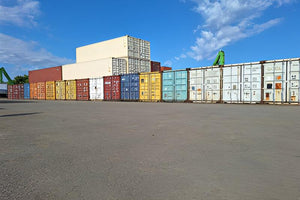
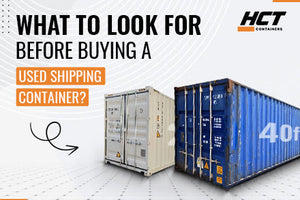
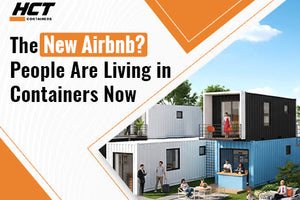
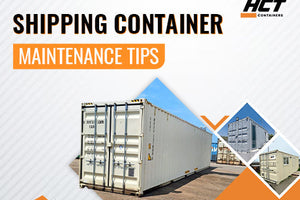
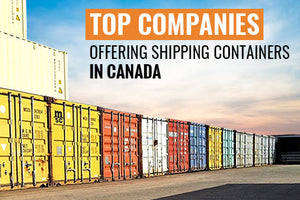
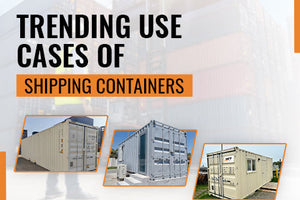
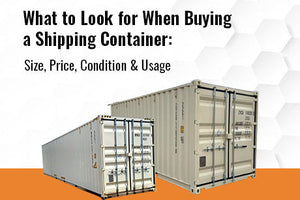
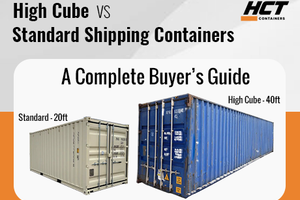
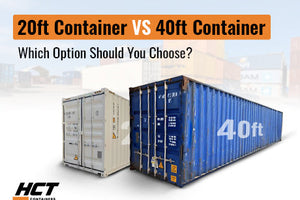

Leave a comment